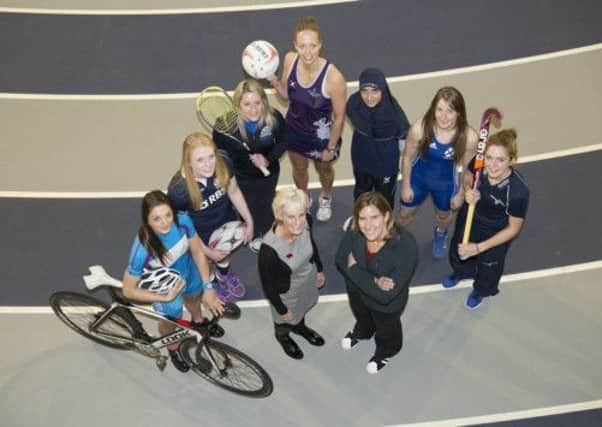Charity to raise profile of women in sport


Speaking at the launch of Scottish Women in Sport, a charity focused on raising the awareness and increasing the profile and opportunities for females in sport, the Great Britain Federation Cup captain said that, while more people are willing to rail against discrimination, attitudes still need to change.
“It’s about creating opportunities and these days I’m far more aware of the female coach and female participation side of things.”
Murray has had to battle stereotypes, though.
Advertisement
Hide AdAdvertisement
Hide Ad“When I went to do my final tennis coaching qualification in 1994, it was a year-long course and, at the time, it was the highest level of qualification you could go for in GB. They had 20 spaces and I applied for one and got it but, when I went on the first workshop, I discovered there were 18 men and two women.
“My boys were six and seven at the time and one of the guys who didn’t get a place complained because I had been given a place.
“He wanted to know what could I possibly offer to performance tennis, especially when I had two young kids. I remember thinking we were already outnumbered nine to one and he still wasn’t happy with those odds, all because I was a female with kids. He thought I would be a waste of time.
“It was my first real understanding of the level of discrimination and resentment women face in sport.”
Now in a position where she can try to address the gender imbalance and expel some of the lazier assumptions and stereotypes, Murray added that the formation of SWIS, allied to encouraging a greater presence of all levels of sport from grassroots participation through coaching and into the realms of decision making, would bolster the number of girls playing sport and progressing to elite standard.
Despite modern-day role models such as Olympic gold medallist Katherine Grainger, who also attended yesterday’s launch at the Emirates Arena in Glasgow, as well as Catriona Matthew, Eilidh Child, Hannah Miley and Libby Clegg, the level of female participation in sport remains markedly lower than for males. A report commissioned between January 2010 and August 2011 found that women’s sport accounted for a pitiful share of the total market sponsorship when compared to the amount earmarked for men’s sports. It also showed that media coverage was weighted heavily in favour of sportsmen.
But the worry for people like Murray is the findings which show that, while 70 per cent of boys participate in regular exercise, the tally for girls is as low as 31 per cent, with only 12 per cent of 14-year-old girls taking the recommended amount of activity. Murray believes those statistics can, at least partially, be attributed to a lack of understanding when it comes to the needs and insecurities of body-conscious girls at that age.
Those kind of statistics proved the catalyst for Maureen McGonigle, the driving force behind the new charity.
Advertisement
Hide AdAdvertisement
Hide AdAfter decades involved in the administration of women’s football in this country, it was a radio report discussing participation levels, as well as studies into the disparity in sponsorship and media coverage, which prompted her to pool together resources and voices she hopes can help alter things for the better.
“I don’t think things are changing quickly enough, if indeed they are changing,” added Murray. “But SWIS is a great way to raise awareness.
“We need to look at the whole thing when it comes to promoting women in sport and through sport.
“If you get a player who is quite good then we need to make sure that there is a pathway for them that is affordable, accessible and is the right pathway for them.
“And if there’s a coach then it’s the same thing.
“Often that comes down to having women in decision- making positions.
There is a need for more female representation on the boards of governing bodies, because we can look after our own better because we understand the needs of our own better,” added Murray.
“We won’t change things overnight but if more of us step up and work together, then we’ve more chance.”